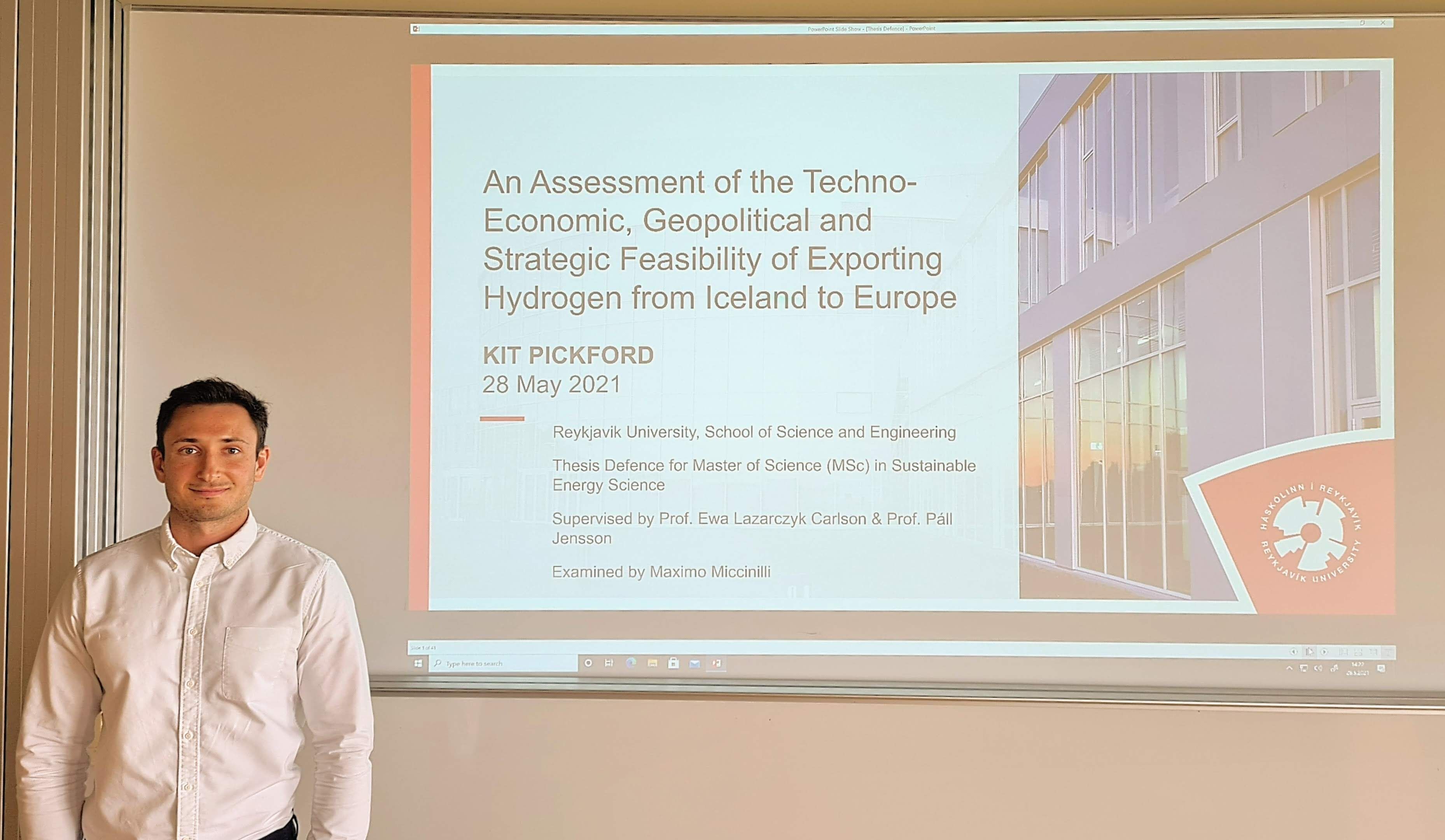MSc Thesis: An Assessment of the Techno-Economic, Geopolitical and Strategic Feasibility of Exporting Hydrogen from Iceland to Europe
REYKJAVIK, May 28 - MSc in Sustainable Energy candidate, Kit Pickford, successfully defended his master's thesis where he presented performed an assessment of the techno-economic, geopolitical and strategic feasibility of exporting hydrogen from Iceland to Europe. Kit's work was supervised by Dr. Ewa Lazarczyk Carlson from Reykjavik University and Dr. Páll Jensson from Reykjavik University.
 Kit began by highlighting that the utilisation of renewable hydrogen in the global energy system is seeing a resurgence of interest, as part of the drive to reduce carbon emissions and to mitigate the worst effects of anthropogenic climate change. He also noted that the large volumes required to meet forecasted demand raised questions over the viability of international trade in hydrogen and how this will impact the geopolitical landscape.
Kit began by highlighting that the utilisation of renewable hydrogen in the global energy system is seeing a resurgence of interest, as part of the drive to reduce carbon emissions and to mitigate the worst effects of anthropogenic climate change. He also noted that the large volumes required to meet forecasted demand raised questions over the viability of international trade in hydrogen and how this will impact the geopolitical landscape.
In the context of Europe's hydrogen strategy, Kit's thesis focuses on the case of exporting hydrogen from Iceland to Europe. Specifically, its techno-economic viability, socio-economic desirability for Iceland, strategies for implementation and geopolitical implications.
While conducting his research, Kit noted that several recent studies focus on the international trade in hydrogen, but none provide a comprehensive assessment of trade between Iceland and Europe. Furthermore, literature on the geopolitical implications of hydrogen trade was found to be lacking, particularly compared to that on conventional energy sources.
For his analysis, an adapted cost model was used to assess the techno-economic viability of hydrogen export between Iceland and Europe and an extensive literature review to assess strategy and geopolitical implications. Four hydrogen pathways were assessed between 2022-2050. Though no pathway reached economic viability, he found that transporting hydrogen as ammonia presented the most feasible opportunity.
In his conclusions regarding Iceland he noted that cost reductions greater than those assumed in the literature are plausible; Iceland should therefore focus initially on building a domestic hydrogen market, whilst tentatively exploring avenues for export. The European hydrogen strategy presents positive market opportunities for Iceland and has negligible negative geopolitical implications.
For Europe, however, Kit noted that pursuing the creation of a hydrogen market presents great geopolitical uncertainty and should be a focus for further research.
Congratulations Kit for an excellent thesis defence!
